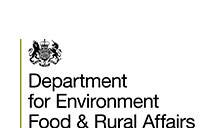Assessing the Current State of Climate Change and Urban Development in the US
To start, it is essential to examine and understand the current situation regarding climate change and urban development in the United States. This includes analyzing the existing policies, strategies, and initiatives in place, as well as identifying the key challenges and opportunities associated with this nexus. Additionally, gathering relevant data and statistics about the impact of urban development on climate change and vice versa will help provide a comprehensive overview.
Examining Existing Policies and Strategies
The first step in assessing the current state of climate change and urban development in the US is to analyze the existing policies and strategies. This involves reviewing federal, state, and local regulations and initiatives that address climate change and urban development issues. Key policies may include emissions reduction targets, energy efficiency standards for buildings, and land use planning regulations.
Identifying Challenges and Opportunities
Understanding the challenges and opportunities associated with the nexus of climate change and urban development is crucial. Challenges may include increasing greenhouse gas emissions from transportation, inadequate infrastructure to withstand extreme weather events, and the loss of natural ecosystems due to urban expansion. On the other hand, opportunities may arise from investing in renewable energy infrastructure, implementing climate-resilient designs, and promoting sustainable transportation systems.
Gathering Relevant Data and Statistics
Accurate and up-to-date data and statistics are essential to assess the impact of urban development on climate change and the other way around. This data can help identify trends, measure the effectiveness of current policies and initiatives, and inform decision-making processes. Key data points may include greenhouse gas emissions by sector, energy consumption in urban areas, and the vulnerability of different regions to climate change impacts.
Comprehensive Overview
By examining existing policies, strategies, and initiatives, identifying challenges and opportunities, and gathering relevant data, a comprehensive overview of the current state of climate change and urban development can be achieved. This overview provides a foundation for addressing the nexus between the two and helps in developing effective and sustainable solutions.
In conclusion, assessing the current state of climate change and urban development in the US is an essential step in understanding the challenges and opportunities associated with this nexus. By examining existing policies, identifying key issues, and gathering relevant data, stakeholders can gain a comprehensive overview and make informed decisions to address the complex issues at the intersection of climate change and urban development.
Recognizing the interconnectedness between climate change and urban development
Understanding the complex interdependencies
Urban areas are highly vulnerable to the impacts of climate change, while also significantly contributing to greenhouse gas emissions. It is essential to recognize and understand the intricate connections between climate change and urban development. By doing so, we can effectively address the challenges posed by climate change while promoting sustainable urban growth.
Assessing the sectors affected by climate change
Climate change affects various sectors of urban development, including transportation, energy, housing, and land use. Extreme weather events and rising sea levels can pose significant threats to urban areas. Additionally, urban development activities, such as building construction and transportation, contribute to greenhouse gas emissions, further exacerbating climate change. By assessing the specific sectors affected and their implications, we can develop comprehensive strategies to mitigate these impacts and foster sustainable urban development.
Incorporating climate change considerations into urban planning and design
A crucial approach to navigating the relationship between climate change and urban development is to incorporate climate change considerations into urban planning and design processes. This involves developing sustainable infrastructure and buildings that reduce greenhouse gas emissions, enhance energy efficiency, and promote climate resilience. Urban planners and designers should prioritize the integration of green spaces, adoption of smart transportation solutions, and implementation of water management strategies to cope with the changing climate patterns and minimize the carbon footprint of urban areas.
Promoting holistic and sustainable urban development policies
To effectively address the interconnectedness between climate change and urban development, it is crucial to promote policies that support holistic and sustainable urban development. This includes developing regulations and incentives that encourage the adoption of renewable energy sources, reducing urban sprawl, and preserving natural ecosystems. Holistic policies should also prioritize equitable access to affordable housing, healthcare, and transportation options for vulnerable communities, ensuring that the benefits of sustainable urban development are shared by all.
Enhancing public awareness and education
Creating public awareness about the interplay between climate change and urban development is paramount for fostering a sustainable and resilient society. Educational campaigns and outreach programs can be implemented to increase public knowledge about climate change impacts, the importance of sustainable urban development, and individual actions that can contribute to addressing these challenges. Engaging with various stakeholders, including community groups, non-profit organizations, and educational institutions, can help disseminate knowledge and facilitate meaningful dialogue.
Strengthening interdisciplinary collaboration and research
Navigating the complexities of the climate change and urban development nexus requires interdisciplinary collaboration and research efforts. Through the collaboration of experts from diverse fields such as climate science, urban planning, architecture, engineering, and sociology, innovative solutions can be developed. Creating platforms for knowledge exchange, encouraging research partnerships, and supporting interdisciplinary projects are essential to comprehensively address the challenges posed by this nexus.
Establishing effective governance and policy frameworks
An effective governance and policy framework is vital for successfully navigating the nexus of climate change and urban development. This involves establishing coordination mechanisms between different levels of government, fostering collaboration with private sector actors, and engaging with local communities. Policy frameworks should be adaptive, proactive, and responsive to emerging climate challenges, ensuring long-term sustainability and resilience in urban development practices.
By recognizing the interconnectedness between climate change and urban development, incorporating climate change considerations into urban planning and design, promoting sustainable policies, enhancing public awareness, strengthening interdisciplinary collaboration, and establishing effective governance, we can create sustainable and resilient urban environments in the face of climate change.
Integrating Climate Change Considerations into Urban Planning and Design
Integrating climate change considerations into urban planning and design processes is a crucial approach to navigate the nexus of climate change and urban development. By incorporating sustainable practices and strategies, cities can reduce greenhouse gas emissions, enhance energy efficiency, and promote climate resilience. Here are some key aspects to consider:
Sustainable Infrastructure and Buildings
To mitigate the impact of urban development on climate change, cities should prioritize the development of sustainable infrastructure and buildings. This involves incorporating renewable energy sources, such as solar panels and wind turbines, into the design and construction of new buildings. Additionally, energy-efficient technologies and designs, such as green roofs and high-performance insulation, can significantly reduce energy consumption and greenhouse gas emissions.
Promoting Green Spaces
Green spaces play a vital role in enhancing urban sustainability and resilience. Urban planners and designers should prioritize the integration of parks, gardens, and green corridors into the urban fabric. These spaces not only improve air quality but also provide natural cooling, reduce the urban heat island effect, and enhance biodiversity. They offer opportunities for recreation and relaxation, contributing to the overall well-being of residents.
Smart Transportation Solutions
Transportation accounts for a significant portion of greenhouse gas emissions in urban areas. Promoting smart transportation solutions is essential for reducing carbon footprint and improving urban mobility. Cities can invest in public transportation systems, pedestrian and bicycle-friendly infrastructure, and electric vehicle charging stations. Encouraging the use of public transportation and active modes of transportation can help decrease the reliance on private cars and alleviate congestion.
Water Management Strategies
Climate change brings increased challenges in water management, such as droughts and extreme precipitation events. Urban planners need to incorporate water management strategies into their designs to address these challenges effectively. This can include implementing stormwater management systems, promoting water conservation measures, and utilizing green infrastructure for natural water filtration and retention. Integrated approaches that consider both water supply and stormwater management are crucial for sustainable and resilient urban development.
Equitable Access and Social Inclusivity
Integrating climate change considerations into urban planning should prioritize equitable access to sustainable resources and services for all residents. Policies and designs should ensure that vulnerable communities have access to affordable housing, healthcare facilities, and transportation options. It is crucial to address environmental justice concerns, advocating for fair distribution of environmental benefits and burdens across different socioeconomic groups.
By integrating climate change considerations into urban planning and design, cities can proactively address the challenges of climate change and work towards creating sustainable and resilient urban environments. These initiatives not only help mitigate greenhouse gas emissions but also enhance the quality of life for residents, promote social inclusivity, and protect natural ecosystems.
Sources:
– United Nations Framework Convention on Climate Change: [link](https://unfccc.int/)
– American Planning Association: [link](https://www.planning.org/)
– U.S. Green Building Council: [link](https://www.usgbc.org/)
Promoting Sustainable and Inclusive Urban Development Policies
To effectively address the nexus of climate change and urban development, it is crucial to promote policies that support sustainable and inclusive urban development. By implementing regulations and incentives, we can encourage the adoption of renewable energy sources, the reduction of urban sprawl, and the preservation of natural ecosystems. Inclusive policies should ensure that vulnerable communities, such as low-income populations and marginalized groups, have equitable access to affordable housing, healthcare, and transportation options.
Regulations and Incentives
Regulatory measures can play a significant role in driving sustainable urban development practices. By establishing regulations that prioritize energy-efficient buildings and infrastructure, cities can reduce greenhouse gas emissions and promote climate resilience. Furthermore, incentives such as tax breaks, grants, and subsidies can encourage the adoption of renewable energy technologies and other environmentally-friendly practices.
Reducing Urban Sprawl
Addressing climate change and urban development requires curbing urban sprawl, which refers to the unplanned, rapid expansion of urban areas. This can be achieved through smart growth strategies that promote compact, mixed-use development, prioritizing infill projects over new construction on undeveloped land. By focusing development within existing urban areas, cities can reduce the need for long commutes, minimize transportation emissions, and preserve natural ecosystems.
Preserving Natural Ecosystems
Natural ecosystems play a crucial role in mitigating the effects of climate change and enhancing urban resilience. Preserving green spaces, such as forests, parks, and wetlands, helps to absorb carbon dioxide, reduce the urban heat island effect, improve air quality, and provide habitats for biodiversity. Policies should emphasize the protection and restoration of these natural areas and consider their integration into urban design and planning processes.
Inclusive Urban Development
Creating sustainable and resilient cities also means ensuring that all members of society have equitable access to basic services and opportunities. Inclusive urban development policies should prioritize affordable housing, healthcare facilities, and transportation options that are easily accessible to low-income populations and marginalized groups. This can foster social cohesion, reduce inequality, and enhance community resilience to climate change impacts.
Key considerations for promoting inclusive urban development:
- Developing affordable housing initiatives and rent control measures.
- Investing in public transportation systems and improving connectivity to underserved neighborhoods.
- Ensuring equal access to quality healthcare facilities and services.
- Fostering community engagement and participatory decision-making processes.
- Promoting economic opportunities and job creation in disadvantaged areas.
By implementing these sustainable and inclusive urban development policies, cities can take proactive measures to address the challenges posed by climate change. These policies should be adaptable, forward-thinking, and responsive to emerging climate challenges, ensuring the long-term sustainability and resilience of our urban environments.
Enhancing Public Awareness and Education
Creating public awareness about the interplay between climate change and urban development is essential for fostering a sustainable and resilient society. With increased knowledge and understanding, individuals can make informed decisions and contribute to addressing these challenges. Here are some key strategies to enhance public awareness and education:
Educational Campaigns
Implementing educational campaigns is an effective way to increase public knowledge about climate change impacts and the importance of sustainable urban development. These campaigns can utilize various mediums such as social media, television, radio, and online platforms to disseminate information. Engaging and informative content can help individuals grasp the significance of the issues at hand and inspire action.
Outreach Programs
Alongside educational campaigns, outreach programs can be designed to target specific communities and demographics. These programs can involve workshops, seminars, and interactive sessions that provide a platform for individuals to learn and engage with experts on climate change and urban development. By tailoring the outreach programs to local needs and concerns, it becomes easier to capture the attention and interest of the community.
Collaboration with Stakeholders
Engaging with various stakeholders is crucial for effective public awareness and education initiatives. Community groups, non-profit organizations, educational institutions, and local businesses can play a vital role in disseminating knowledge and facilitating meaningful dialogue. Collaboration with these stakeholders can lead to the development of joint initiatives, events, and resources that reach a wider audience.
Knowledge Exchange
Creating platforms for knowledge exchange allows for the sharing of best practices, case studies, and research findings related to climate change and urban development. These platforms can include conferences, forums, and online communities where experts, policymakers, and practitioners can come together to discuss and present their work. By fostering a culture of knowledge sharing, innovative ideas and solutions can be discovered.
Overall, enhancing public awareness and education is a critical step in addressing the nexus of climate change and urban development. Through educational campaigns, outreach programs, collaboration with stakeholders, and knowledge exchange, individuals can be empowered to make informed decisions and contribute to creating sustainable and resilient urban environments in the face of climate change.
Strengthening interdisciplinary collaboration and research
Navigating the nexus of climate change and urban development requires a multidisciplinary approach that brings together experts from various fields. Collaborative efforts in research and knowledge exchange are crucial for developing innovative and effective solutions. By fostering interdisciplinary collaboration, we can tap into the expertise of climate scientists, urban planners, architects, engineers, sociologists, and other professionals to address the complexities of this issue comprehensively.
An essential step in strengthening collaboration is creating platforms for knowledge exchange. These platforms can facilitate dialogue, sharing of research findings, and the exploration of new ideas. One such initiative is the Urban Design Climate Consortium, which brings together experts and practitioners from different disciplines to address the challenges posed by climate change in urban environments.
Research partnerships play a crucial role in advancing our understanding and finding sustainable solutions. Collaborative projects among universities, research institutions, and private sector organizations allow for the pooling of resources and expertise. For instance, the C40 Research Network fosters collaboration among cities worldwide to identify effective strategies for tackling climate change.
Interdisciplinary projects should focus on addressing the interdependencies between climate change and urban development. For example, research can explore how integrating green infrastructure, such as urban forests and green roofs, can mitigate the urban heat island effect and reduce energy consumption. Additionally, investigations into the social and economic impacts of climate change on vulnerable communities can guide the development of equitable adaptation strategies.
Strong interdisciplinary collaboration and research efforts require funding and support. Governments, foundations, and private organizations should prioritize investments in research projects that focus on the climate change and urban development nexus. By allocating resources towards interdisciplinary research, policymakers can access evidence-based insights and make informed decisions to create sustainable and resilient urban environments.
In conclusion, strengthening interdisciplinary collaboration and research is crucial for navigating the complex nexus of climate change and urban development. By fostering knowledge exchange, promoting research partnerships, and supporting interdisciplinary projects, we can develop innovative and effective solutions to address the challenges posed by climate change in urban environments.
Establishing Effective Governance and Policy Frameworks for Climate Change and Urban Development
To successfully navigate the nexus of climate change and urban development in the United States, it is crucial to establish effective governance and policy frameworks. These frameworks should prioritize coordination mechanisms between different levels of government, foster collaboration with private sector actors, and engage with local communities. The goal is to create adaptive, proactive, and responsive policies that ensure long-term sustainability and resilience in urban development practices.
Coordinating Mechanisms between Government Levels
Effective governance requires coordination between different levels of government, including federal, state, and local authorities. Establishing collaborative platforms that encourage information-sharing, policy alignment, and resource allocation is essential. By coordinating efforts, governments can ensure a comprehensive approach to address climate change impacts and integrate sustainability principles into urban development planning.
Collaboration with Private Sector Actors
Engaging with private sector actors is vital for achieving sustainable and resilient urban development. By collaborating with companies and organizations, governments can leverage their expertise, resources, and innovative solutions. Public-private partnerships can help fund and implement projects related to renewable energy, green building practices, and climate resilience. Encouraging private sector involvement through incentives and regulations can drive sustainable urban development practices.
Engaging with Local Communities
An inclusive approach to governance involves actively engaging with local communities. Policies and decisions should be shaped through meaningful dialogue with community members, including representatives from marginalized groups and low-income populations. This ensures that the voices and concerns of all stakeholders are considered in urban development planning. Equitable access to affordable housing, healthcare, and transportation options should be prioritized to address social inequalities and promote resilient communities.
Adaptive and Responsive Policy Frameworks
Policy frameworks must be adaptive and responsive to emerging climate challenges. They should be regularly reviewed, updated, and refined to address evolving circumstances and scientific knowledge. Incorporating feedback from experts, stakeholders, and affected communities is crucial for ensuring that policies are effective and equitable. By continuously evaluating and adjusting policies, governments can effectively tackle the challenges posed by climate change and urban development.
References
- United States Environmental Protection Agency – Smart Growth
- United Nations – World Urbanization Prospects 2018
- The World Bank – Urban Development
Category: Nature and Environment







Leave a Reply